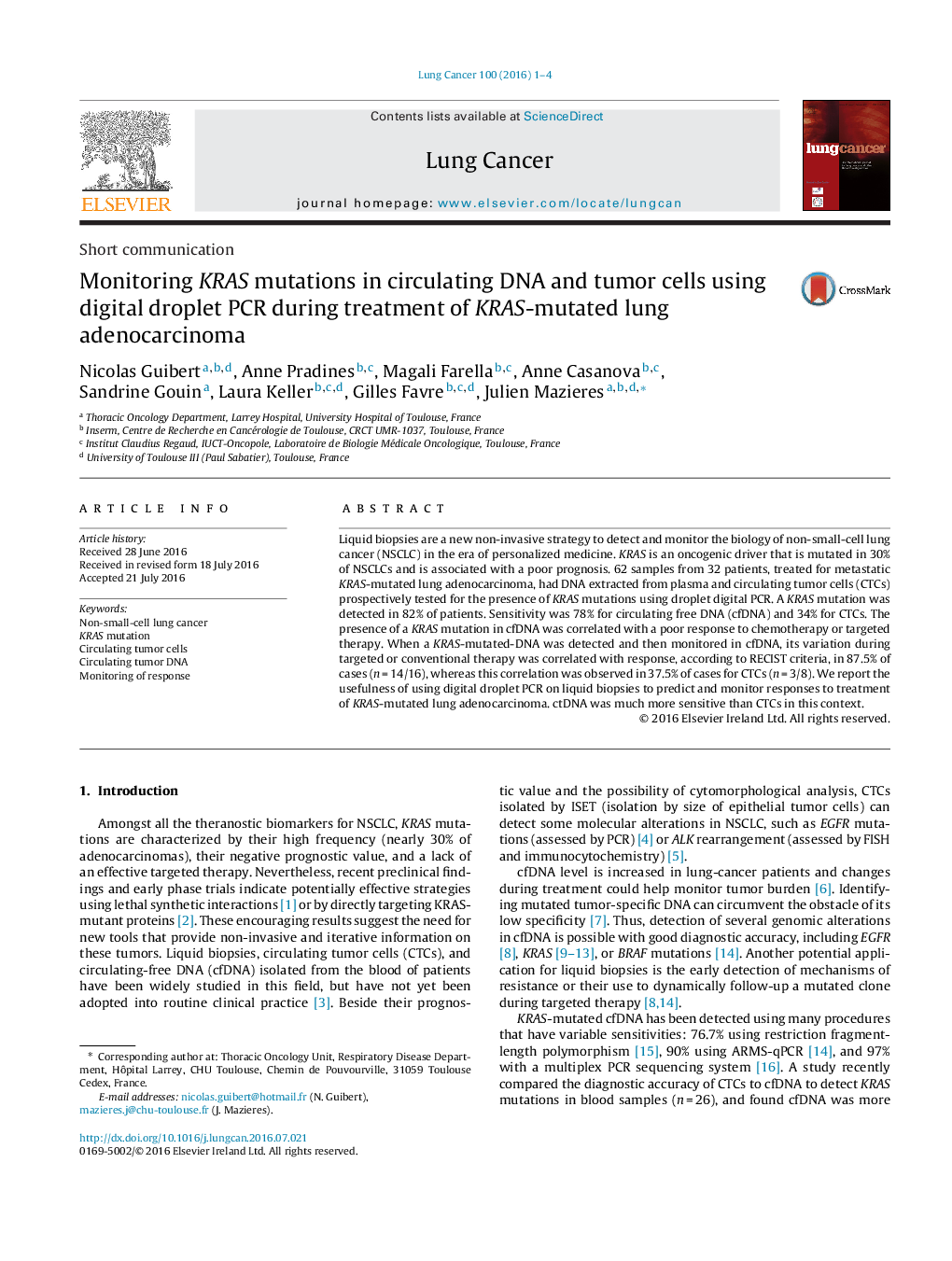| Article ID | Journal | Published Year | Pages | File Type |
|---|---|---|---|---|
| 2140404 | Lung Cancer | 2016 | 4 Pages |
•The monitoring of KRAS mutated DNA in CTCs and ctDNA during treatment of NSCLC is proposed.•ctDNA is much more sensitive than CTCs for the detection of KRAS mutations.•The presence of a KRAS mutation in cfDNA is correlated with a poor response to treatment.•There is a good concordance between variation of KRAS mutation in ctDNA and response to treatment.
Liquid biopsies are a new non-invasive strategy to detect and monitor the biology of non-small-cell lung cancer (NSCLC) in the era of personalized medicine. KRAS is an oncogenic driver that is mutated in 30% of NSCLCs and is associated with a poor prognosis. 62 samples from 32 patients, treated for metastatic KRAS-mutated lung adenocarcinoma, had DNA extracted from plasma and circulating tumor cells (CTCs) prospectively tested for the presence of KRAS mutations using droplet digital PCR. A KRAS mutation was detected in 82% of patients. Sensitivity was 78% for circulating free DNA (cfDNA) and 34% for CTCs. The presence of a KRAS mutation in cfDNA was correlated with a poor response to chemotherapy or targeted therapy. When a KRAS-mutated-DNA was detected and then monitored in cfDNA, its variation during targeted or conventional therapy was correlated with response, according to RECIST criteria, in 87.5% of cases (n = 14/16), whereas this correlation was observed in 37.5% of cases for CTCs (n = 3/8). We report the usefulness of using digital droplet PCR on liquid biopsies to predict and monitor responses to treatment of KRAS-mutated lung adenocarcinoma. ctDNA was much more sensitive than CTCs in this context.
